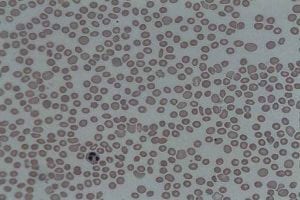According to a story from BioSpace, medical student Kristin Hunt of McGill University will be this year’s recipient of the David R. Cox Scholarship for Rare Compassion. The purpose of this scholarship is to provide financial backing to a medical student who displays a connection and interest in rare diseases and the rare disease community in an effort to develop a unique understanding for the miriad of challenges faced by rare patients and their families. Kristin’s own experience with immune thrombocytoptenia (ITP) helped inspire her desire to pursue medicine.
About Immune Thrombocytopenia
Immune thrombocytopenia, also called immune/idiopathic thrombocytopenia purpura, is a condition of low blood platelet count with normal bone marrow function in an absence of other clear causes. It is characterized by the appearance of of purpura-type rashes and increased bleeding. This is an autoimmune disease; in children, the condition often appears after an infection and resolves in a couple of months. In adults, immune thrombocytopenia more often appears as a long term, chronic condition. Symptoms include prolonged bleeding from injury, bruises, petechiae, hematomas (blood masses on mucosal surfaces), heavy menstrual bleeding, and bleeding from the gums or nostrils. Usually treatment is reserved for cases of serious bleeding and other symptoms; these treatments include eradication of H. pylori, surgery, platelet transfusion, IVIg, and steroids. To learn more about immune thrombocytopenia, click here.
The Impact of Rare Diseases
About ten percent of the US population is directly affected by a rare disease, but many medical professionals have little experience recognizing or treating these illnesses. Hunt knows first hand as a rare disease patient that doctors across the country could benefit from more training about rare diseases so that they can diagnose them more effectively.
The Cox Scholarship
Applicants to the Cox Scholarship are matched with a rare patient in order to get a glimpse into the daily struggles that they face and the serious deficiencies in care that they often face. The scholarship is in its third year and was started by a group of medical students. The scholarship was named after a reknowned scientist who played a vital role in finding a treatment for the rare disease ataxia telangiectasia.
The scholarship is supported by the patient advocacy group Global Genes. Learn more about their activities here.






